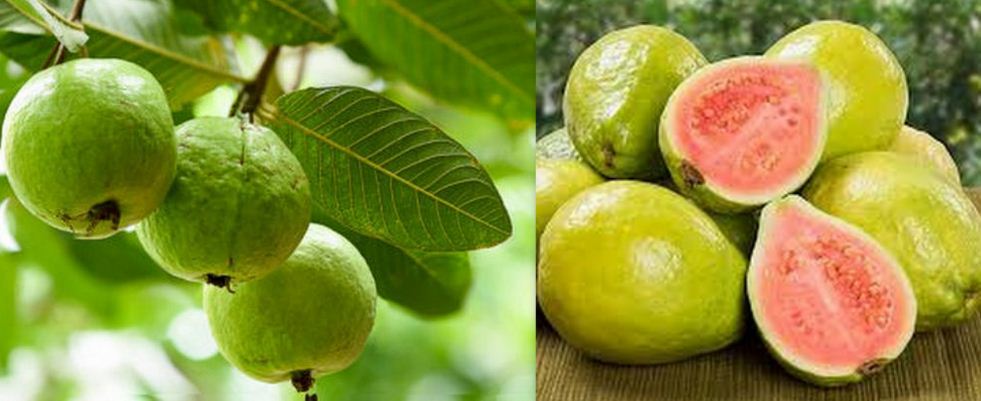Amazing Facts and Health Benefits of Guava

Guava is that sweet and juicy green fruit you have seen but may have probably ignored. Whether inside or outside, it doesn’t matter when you’re munching on this little bite-sized gem.
Eating guava has real benefits, whether you consume it raw or blend it into a drink. I’ve seen some solid information that reveals seven benefits of guava fruit that can help you anywhere you live.
Why Guava Is a Gem
Guava is generally found worldwide, from South America and Africa to Asia. It is popular due to its flavored taste and crisp texture. A medium guava (55 grams) is small but is an excellent source of vitamins, fibre, and antioxidants.
I’ve only pulled seven benefits from a reliable source but kept the message simple. Guava nutrition can do a lot more than one might believe. Guava helps improve immunity and gut health. Let’s break down these benefits and how they work.
Guava has seven great health benefits.
1. Boosts Immunity
Want to stay tough against colds and germs? Guava’s got you covered. One fruit provides over 200% of your daily vitamin C requirement, about 125 milligrams. This gives your immune system a boost. It’s become one of the best natural immunity boosters, fighting off infection in the body fast.
How It Works
Vitamin C “boosts your defence” by boosting the activity of white blood cells that attack bugs. It’s like a shield for your health.
How to Eat Guava for Immunity
Slice it up and eat it plain for a quick immune boost.
Blend it with orange juice for a vitamin C-packed drink.
2. Improves Digestion
If you are having stomach discomfort, guava can help. A medium-sized guava fruit has 3 grams of fiber that helps keep the digestive tract functioning smoothly. This fiber helps generate helpful bacteria in the abdomen and promotes better functioning. If you are feeling bloated or you need a push, guava will help you as it is natural.
How It Works
Fiber makes poops easier and helps gut bacteria do their thing, which soothes the tummy. It’s a gentle way to avoid tummy troubles.
How to Enjoy Guava for Digestion
Eat a whole guava after a big meal to settle things down.
Mix chunks into yogurt for a fiber-rich snack.
3. Supports Heart Health
Your heart keeps you going, and guava gives it some love. Every guava fruit has potassium, which is good for maintaining steady blood pressure. Since guava has 3 grams of fiber, it helps lower cholesterol, which keeps arteries clear. With heart issues a global concern, guava’s a smart pick.
How It Works
Potassium calms blood vessels and delivers less strain on the heart, while fiber traps cholesterol. Together, they keep your heart happy.
How to Eat Guava for Heart Health
Add slices of guava to a bowl of oats with a few nuts.
Mash them with a few drops of lime to spread over bread.
4. Keeps Skin Healthy
Who doesn’t want smooth, firm skin? Guava provides vitamin C (more than 200% of the daily requirement) and the antioxidant lycopene. Vitamin C helps create collagen so skin stays firm, and antioxidants fight sun or pollution damage. It is not a quick way to get your skin looking good, but it does so over time.
How It Works
Vitamin C helps your skin appear better, and antioxidants protect it. It’s a natural way to make your skin glow.
How to Use Guava for Skin
Eat it fresh with breakfast to feed your skin inside out.
Mash it into a 10-minute face mask, then rinse off.
5. Boosts Energy
Feeling like you're losing some energy? Guava can perk you up. A medium-sized Guava has around 9 grams of mainly natural sugars, providing an instant energy boost. This mineral, vitamin C (125 mg), enables your body to utilize more energy, allowing you to power through without crashing.
How It Works
The sugars may give your system a quick boost, while vitamin C aids cellular usage. It’s a light, natural pick-me-up.
How to Eat Guava for Energy
Grab one for a midday snack when you’re ready.
Blend it with a banana and water for an energy drink.
6. Protects Your Eyes
Having different levels of vision in our eyes is essential for reading or enjoying a sunset. Guava fruit contains vitamin A, which maintains eyesight. This fruit also has vitamin C and antioxidants that help protect against damage so you can still see well in your old age.
How It Works
Vitamin A positively affects the corneas, while antioxidants combat damage from light. Guava's properties make it a simple way to care for your eyes.
How to Enjoy Guava for Eye Health
Toss chunks into a salad with leafy greens.
You can also blend guava with carrots and milk.
7. Helps Blood Sugar Balance
Are you worried about sugar spikes? Guava might help. Guava fiber (3 grams) slows down sugar absorption, preventing spikes. Several studies have shown that guava can reduce fasting blood sugar. It is one of the smartest fruits for balance.
How It Works
The fiber content in guava slows down the rate of sugar absorption. It’s not a cure, but it supports control.
How to Eat Guava for Blood Sugar
Eat it whole before a carb-heavy meal to ease the spike.
Mix slices into a bowl of rice for a balanced bite.
What’s Inside a Guava?
Here’s what a medium guava (55 grams) brings:
Calories: 37—light and easy.
Combines a bit of natural sugar, too.
Contains three grams of fiber to smoothen your gut.
Vitamin C: 125 mg—more than double the daily requirement to boost the immune system and skin health
Vitamin A: 8% of daily requirement for eyes and skin.
Potassium fulfills 12% of the daily body requirement.
Antioxidants: Lycopene and more—fight damage.
These figures come from the source and match USDA numbers. Guava nutrition may be small, but it packs a powerful punch.
How to Add Guava to Your Diet Every Day
Guava is easy to use and is available in most markets and stores worldwide. Here’s how to include guava in your meals, no matter where you are.
Breakfast Ideas
Just peel (or not) and chew it whole, including all the seeds.
Blend half a guava with milk and berries for a smoothie.
Add it to Cereals by cutting it in Oats with Honey.
Lunch Options
Toss chunks into greens with a dash of vinegar.
Chop it with tomatoes to get the side for fish.
Add slices of onion to a chicken sandwich for a sweet kick.
Dinner Suggestions
Add chunks to a vegetable stew for flavour.
Use it as a topping for grilled meat after mashing it with lime.
Mix it with rice and sprinkle some salt on top.
Snack Solutions
You can have it as a fresh snack by dicing it and consuming it cold from the fridge.
You can mix this with an apple or a mango.
Blend it with ice for a cool sip.
Why Guava’s Worth It
Guava is a tasty fruit that’s crunchy, sweet, and good for your health. It’s grown worldwide, often cheap, and fits into any meal. Seven guava health benefits include immunity, digestion, heart health, skin, energy, eyes, and blood sugar.
You can begin with a small amount, maybe one a day, and see how it feels with these tips on eating guava. Your body will appreciate it. Give these guava recipes a shot and tell me how it goes. It’s a simple way to stay healthy!




